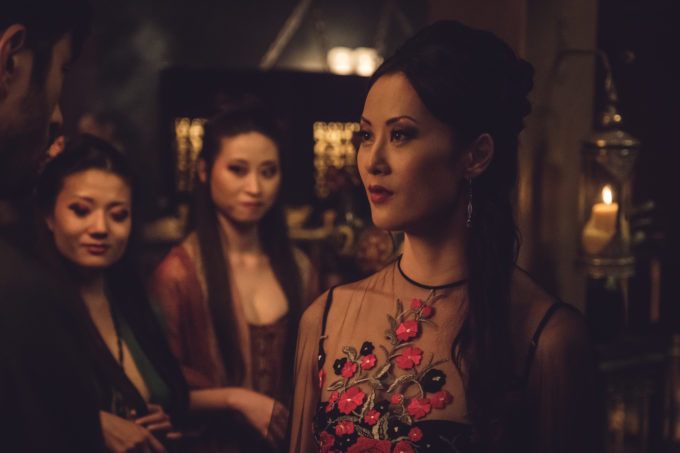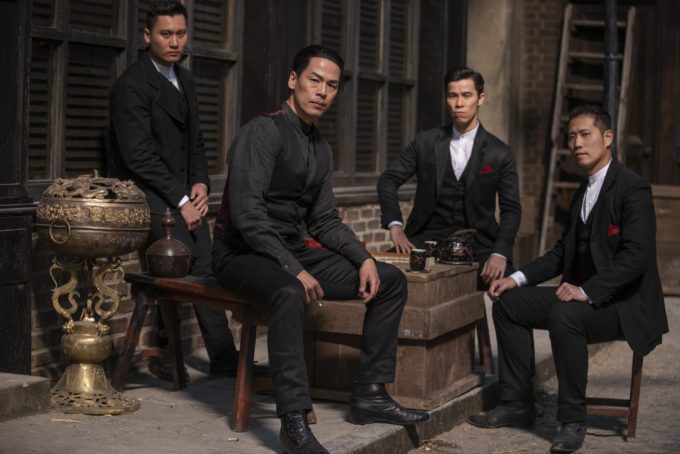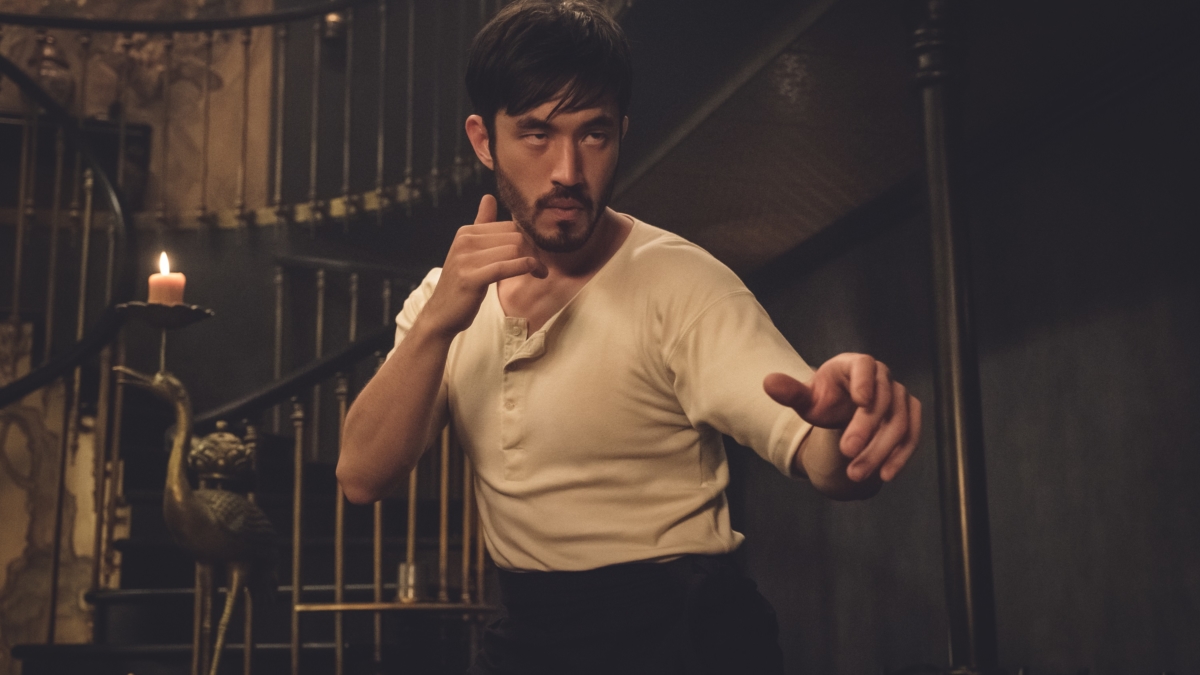The announcement of Warrior or any television show that is based on Asian American experience comes with two conflicting feelings. Excitement, stemming from our desire for representation as well as the knowledge of how interesting our stories can be. And fear, having been disappointed in the past (sorry Dr. Ken) and knowing how difficult good storytelling is. Who do we hold accountable for a story’s success or failure? Are we, as consumers, failing up and coming creators if we fawn over every moment of representation? Or are we squashing their dreams by being too critical? Not allowing them to fail and grow as storytellers? It’s a lot to process and consider, especially when we’re given the opportunity that is Cinemax’s Warrior.
Based on a treatment written by legend Bruce Lee, Warrior, is a fun and complicated piece of television. Fun being an integral part of the show and complicated due to its legacy and place in the larger conversation of minority representation on TV. Executive produced by Lee’s daughter, Shannon, writer/producer Justin Lin, and Banshee creator Jonathan Tropper. Warrior premieres tonight, April 5th, 2019 at 10pm ET on Cinemax.
Three members of the Asian CineVision team got to see the pilot and from their different perspectives come these thoughts.

Olivia Cheng as Ah Toy
Nathan Liu (Writer):
Warrior opens with the protagonist, Ah Sahm (Andrew Koji,) arriving in 1870s San Francisco, and instantly being bombarded with chants of “Chinks go home.” He barely gets five feet before a racist cop comes up and punches him in the face. Ah Sahm doesn’t appear phased by this, simply wiping the blood from his nose, and insulting the officer in perfect English. The policeman snaps, “you think because you speak American, that gives you the right to talk shit to me?” To which Ah Sahm replies, “Well, it sure makes it easier.” He then proceeds to knock the officer and his cronies flat on their backs, and walk off as if nothing happened.
This opener pretty much sets the stage for the entire show. It’s a period piece where everyone talks like a modern American, where racists are really, really racist, every female character gets naked at least once, the hero always has a one-liner at the ready, and where virtually every interaction leads to fisticuffs. In other words, it’s a pulpy, 70s exploitation film.
Wynton Wong (Programming Manager):
The pulpy nature of Warrior is where it really shines. The excellent fight choreography of Brett Chan straddles the line of contemporary, gritty fist fights and Bruce Lee’s swagger filled steps. The anachronistic costume design of the rival tongs and the claustrophobic nature of the Chinatown set create a temporal bubble where it feels wrong to get nitpicky. But when real languages and real history are mined the line between a nitpick and essential detail gets blurred. How the show deals with switching back and forth from Cantonese and English can be jarring. The Canto translations and pronunciation can be distractingly awful. Especially when Cantonese is a colorful language that lends itself to creative insults, slang and wordplay. As well as the fact that Canto and English speaking actors and writers are definitely available (hi Ramona Young on CW’s Legends of Tomorrow(!),) makes the choices showrunner Jonathan Tropper made more than a little confusing.
Milisa Burke (Programmer/Archivist):
The show drops history nuggets here and there for us to learn a bit more of the true history of the American West, while providing some political intrigue to anchor the story in more traditional period storytelling. But, remember, this is Skinemax so what we’re here for is people cursing, kicking ass, and having sex. And Warrior delivers, though probably at the expense of making too much sociopolitical headway. Not everyone is skilled in martial arts. We’re allowed to see Asian American males be sexual and overtly masculine in a way that does not usually happen on television. Asian American women are able to be multifaceted but still regulated to roles of sex work. The show has an answer for this, and takes the opportunity to drop an expository history nuggets, but it’s still tiresome. Racism as a constant plot point offers the chance for the writers to make some comments about what’s happening in America today, while still being able to appear edgy. Are you freaked out because you’re pretty sure a hate crime is about to go down? You might not be able to do anything about the racists outside your door, but this time you can have the satisfaction of seeing some hatemongers get cut down with an axe on television.

Rich Ting as Bolo and Jason Tobin as Young Jun
N.L:
M.B:
Almost every moment is predictable in Warrior, but it feels okay because no one is truly tuning in for a history lesson. We’re here to cheer on the incredibly hot hero, see some topless ladies and male bare butts, and to boo the baddies. It’s refreshing to see Asian characters actually played by people of Asian descent, in addition to starring in a major television show.
W.W:
For all the mental hoop jumping that Warrior can cause an Asian American viewer (a true guilty pleasure,) it’s worth a watch. Because it’s a fun conversation starter for the AAPI and entertainment community. The incredible, charismatic acting work that Jason Tobin, Olivia Cheng, Joe Taslim do warrants a look at how we cast across the board. The entangled nature of Asian American history within American politics and movements is undeniably interesting. And the difficulties in who tells these complex stories and why should continue to be explored. Warrior may not be a perfect piece of storytelling but isn’t that what we continue to fight against?

